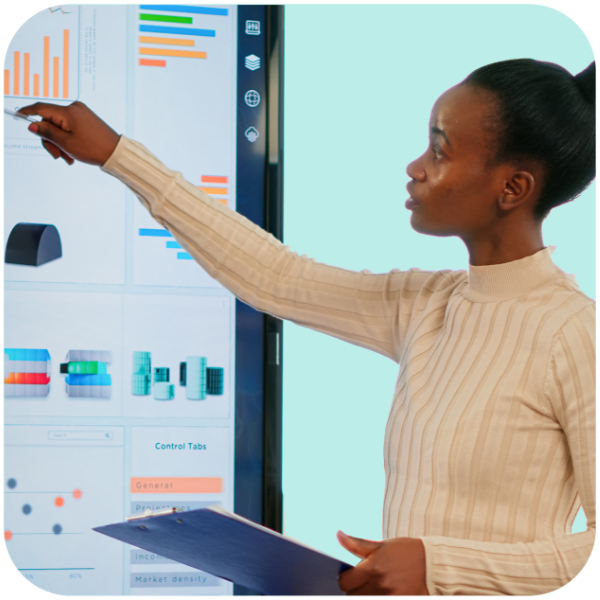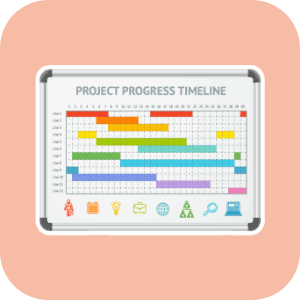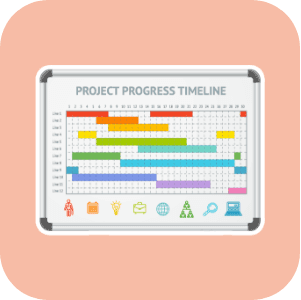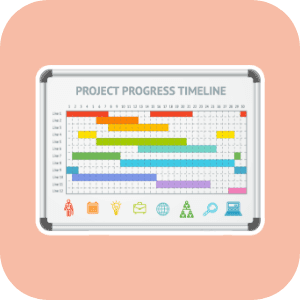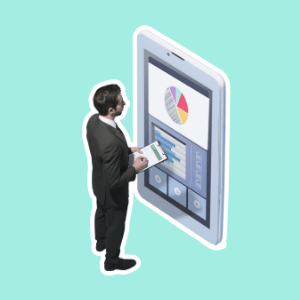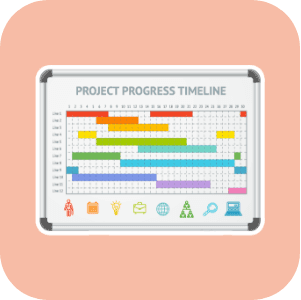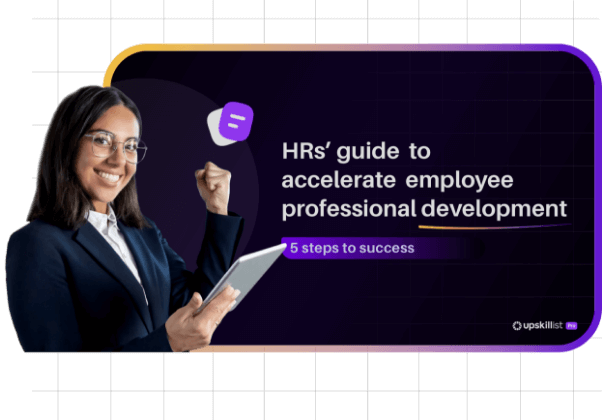Learn the basics of
Mini MBA in Business
Develop your employees into business savvy individuals armed with the theoretical grounding, current and contemporary business jargon, tools, business models, industry insights and practical ready-to-apply tools to remain competitive and ahead of their industry peers with this Mini MBA in business leadership.
Key Learning Objectives:
- Explore business theory, foundational concepts, tools, models and frameworks
- Create a personal elevator pitch
- Create a strategic marketing plan using the 7Ps of the marketing model
- Evaluate corporate legislation

Ideal for:
Anyone in a business environment who is looking to upskill in business without the hassle of a full-time MBA.
Course outcome:
Develop teams with a full comprehension and understanding of business growth and development.
Course outline:
08
Weeks
02
Modules
16
Lessons
Course accreditation:
Upon completion of this leadership training course your employee will receive an accredited certificate assessed by global academic partner, the CPD Certification Service.
Globally recognised by:

Course details
MODULE 1
Mini MBA in Business
MODULE 1
Mini MBA in Business
1.Strategy I: Business Strategy Basics
At the end of this lesson, you will review the full course overview & understand the components that make up this course. Identify the types of businesses, entities, the three business contexts and the purpose of business. Recognise the purpose and components of a business strategy and strategic plan. Understand the business context using Porter's 5 Forces model which is a situational analysis to determine the business context. Complete a personal elevator pitch.
2.Marketing I: The Exciting World of Marketing
By the end of this lesson, students will Explain using examples your understanding of important concepts in marketing. Understand strategic marketing & value creation. Practical outcome: Create a strategic marketing plan using the 7P’s of marketing: decision-making model
3.Economics I: Perspectives in economics
By the end of this lesson, students should be able to: Understand the definition & branches of economics; and Explain rational choice & key concepts in economics. Practical outcome: Construct the Production possibility curve based on your understanding of key concepts
4.Accounting I: Accounting fundamentals
At the end of the this lesson Students will - Correctly identify the various types of accounting concepts and financial transactions of a business - Categorise transactions using the accounting equation - Understand the common language of accounting and global practices
5.Supply chain management I: The Marvellous World of Supply Chain & Operations Management
By the end of this lesson, students will: Describe key concepts in supply chain management, and Explain the strategic role of SCM using the 3 stages of operational planning. Practical outcome: Application of the SCOR model
6.Strategic human resource management I: Human Capital intrinsics
By the end of this lesson, students will Understand key concepts in the field of human resources. Identify the three roles of the human resources department. Explain the strategic role of human resources, their deliverables and their metrics. Practical outcome: HR measurement metrics for certain deliverables in the employee life cycle
7.Information systems I: Information System Fundamentals
At the end of this lesson, students will - Identify the types of information systems, - Recognise the five primary components of information systems, and- Explain why information systems are a business imperative.
8.Leadership, Ethics, Governance & Law I
By the end of this lesson, students will Understand important concepts in Leadership Identify and apply different leadership styles for different contexts. Identify the qualities or traits of effective leaders . Practical outcome: Identify their own leadership style and create a plan to become a more effective leader
MODULE 2
Intermediate in Mini MBA
MODULE 2
Intermediate in Mini MBA
1.Strategy II: Business Analysis Basics
In this lesson, you will - Recap business strategy intrinsics - Refresh your knowledge of the strategic planning approach/cycle - Deepen your knowledge of strategic planning in the area of environmental scanning - Undertake a strategic planning exercise by constructing a business SWOT analysis
2.Marketing II: The Compelling World of Marketing
By the end of this lesson, students should be able to: - Recap their understanding of strategic marketing - Identify the key elements of the marketing plan - Revise certain elements of the marketing mix Practical outcome - Deepen their knowledge in strategy development 'product' & 'place' in the marketing mix, by learning how to apply the Ansoff matrix.
3.Economics II: Microeconomics
Students will be able to -Identify the focus of the sub-field of Microeconomics. Understand the concepts marginal utility, elasticity and equilibrium and explain their effect on supply and demand. Examine demand and know how to read, analyse and interpret demand using a graph. Examine supply and know how to read, analyse and interpret supply using a graph
4.Accounting II: Interpreting the Income Statement
This lesson includes: - An introduction to financial statements & key concepts - Learn to locate and identify an income statement - Learn how to examine and interpret an income statement.
5.Supply chain management II
In this lesson, students will: Recap supply chain basics. Learn to identify the six supply chain orientation models. Understand the three important flows in supply chain management. Observe best practices from globally recognised leaders in supply chain management.
6.Strategic Human Resource Management II - Organisational Culture
In this lesson, students will: Recap the employee life cycle and the jobs of HR. Deepen their understanding of organisational culture. Learn the principles and dimensions of culture to enhance employee centricity & performance using the Hofstede and Trompenaar models of culture
7.Big Data
At the end of this lesson, students will 1. Understand the importance of technology and its data component 2. Understand the classification & processing of data 3. Examine the applications, advantages & challenges of big data
7.Leadership, Ethics, Governance & Law II
At the end of this lesson, students should: 1. Understand the importance, basic principles and key concepts in corporate governance 2. Identify the pillars of corporate governance 3. Examine business case studies in the domain of corporate governance to understand governance failures

